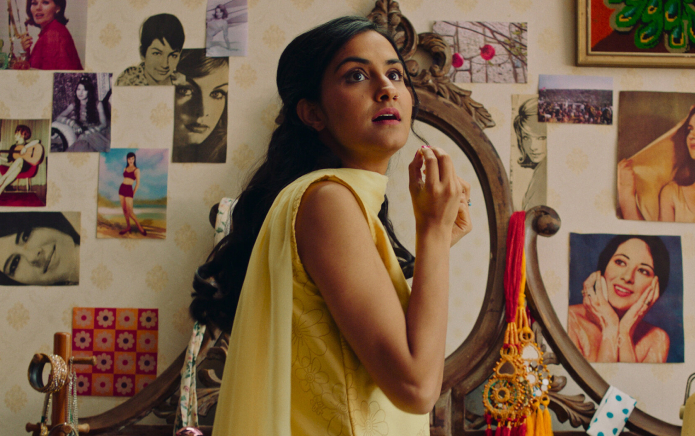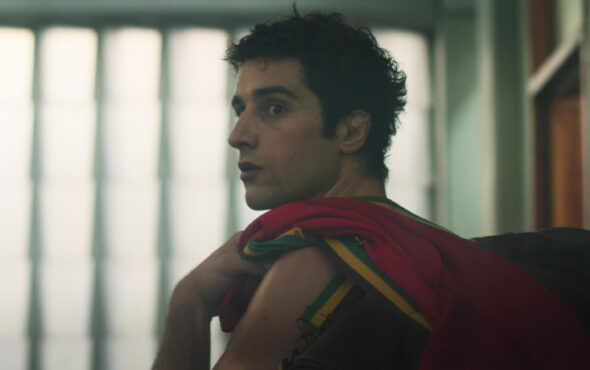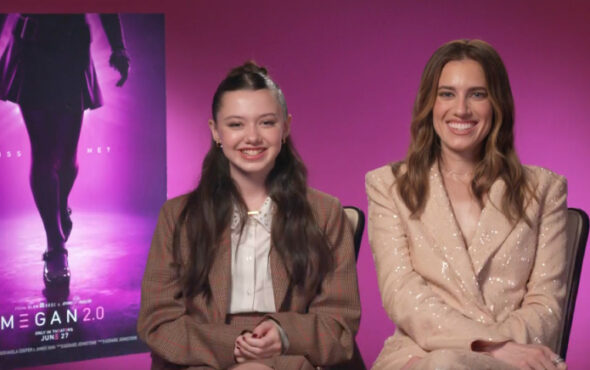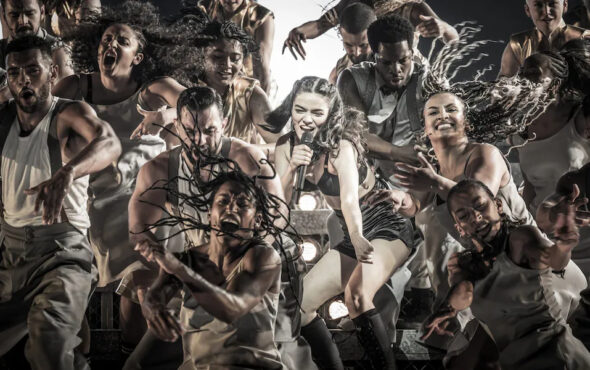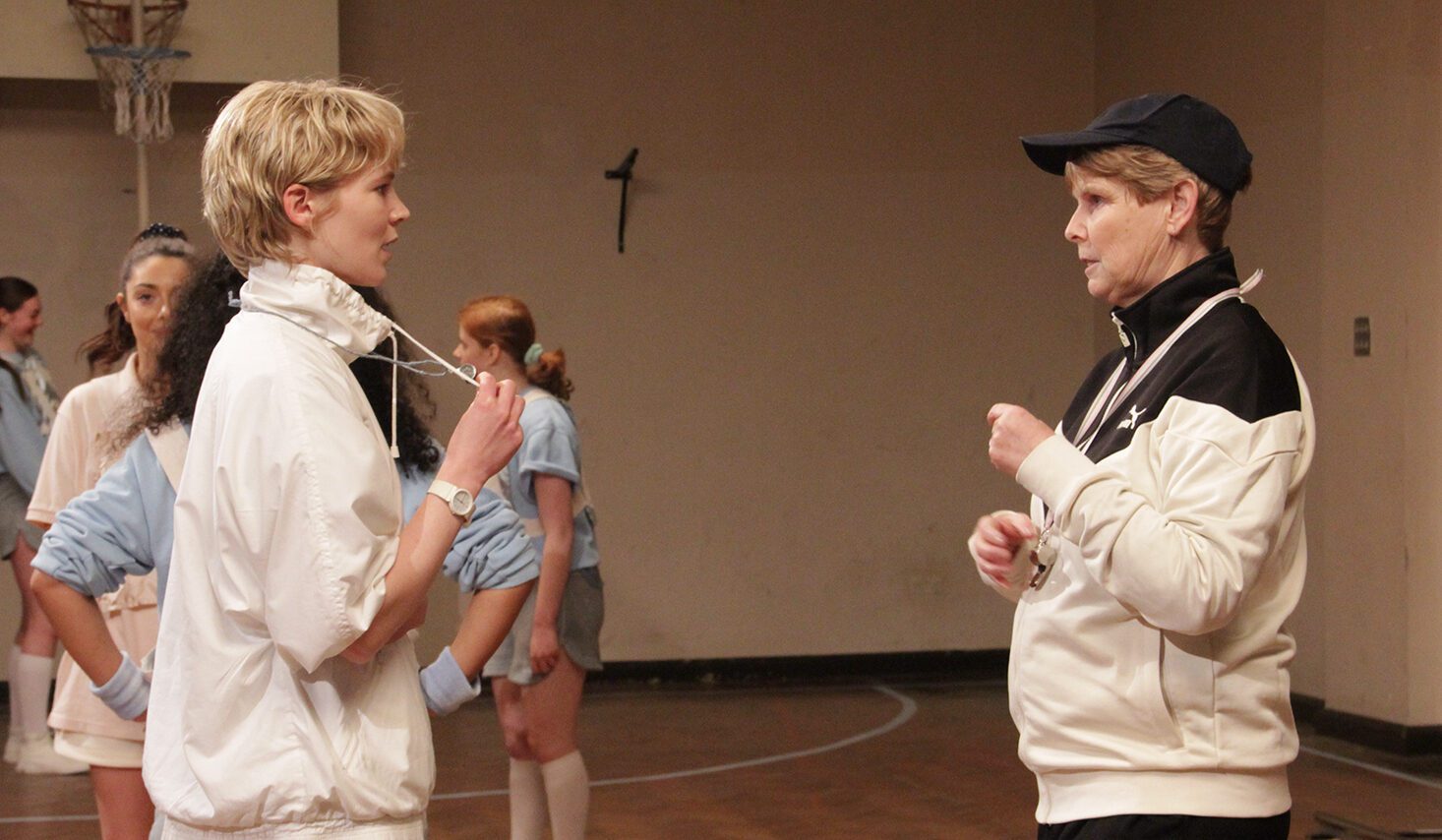
With LGBTQ+ History Month in full swing, many of us are learning about time periods and parts of the LGBTQ+ community that we haven’t immersed ourselves in before. That’s exactly what Georgia Oakley did when creating the highly anticipated and multi award-winning film BLUE JEAN.
Set in 1988 during Margaret Thatcher’s Conservative government, Oakley’s debut follows Jean, played by Rosy McCewen, as she navigates life as a PE teacher as Section 28 comes into force.
Section 28 saw a series of laws introduced across Britain that prohibited the ‘promotion of homosexuality’ by local authorities, meaning in schools it was against the law to speak about LGBTQ+ relationships. As a lesbian, Jean finds herself living a double life, becoming conflicted from all sides about how to live authentically.
GAY TIMES sat down with writer and director Georgia Oakley and actor Rosy McEwen who plays Jean, to discuss what inspired this queer masterpiece and what impact it hopes to leave.
Was there anything specifically that compelled you to write and create a film about this time period during Section 28 in Britain?
Georgia: With Blue Jean I knew what kinds of themes I was looking to explore. I was really set on making a film about internalised homophobia because I had felt under some pressure to make and write a queer story as a queer filmmaker, but one that sort of sugar coated the queer experience. Although I think it’s important to tell those stories, and for queer people to have happy endings … I also found that that was quite problematic. I felt that as a filmmaker who was just about to make their first feature, I was being robbed of a sort of right of passage and that if I wasn’t done with my own angst that I should probably go there.
I then stumbled across an article about Section 28 and shamefully, I didn’t know anything about it and was just struck by what a colossal impact it must have had on my life and those around me.
That sort of led us down a rabbit hole of research where we met around 50 different people whose lives have been impacted by Section 28 in some way. Teachers, lesbian PE Teachers, activists, people who started Stonewall and LGBTQ+ History Month. We met everyone we could possible meet to tell us more about their experiences.
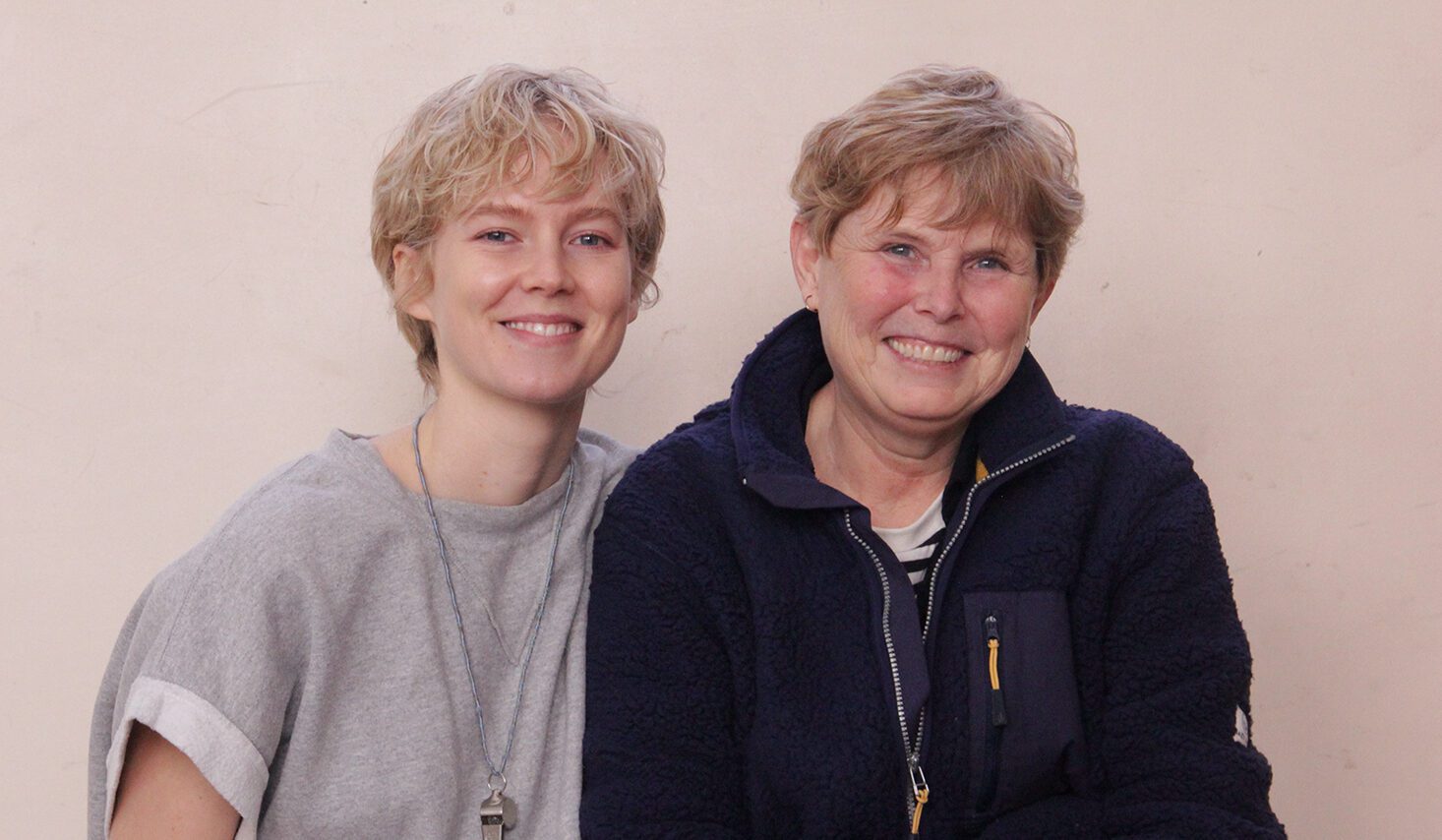
It’s so important, and clear in the film that it is an informed piece of work. When you were creating BLUE JEAN, what was the one takeaway that you wanted the audience to leave with?
Georgia: I was fascinated by the fact that there was all this generational infighting within the queer community, and I suppose one of the takeaways from BLUE JEAN that I hope will reach members of the queer community is the idea of ‘the inheritance’. It is often hard for us to put ourselves into somebody else’s shoes – both in the generation above or the generation below, and subsequently have empathy for the ways that they behaved because their experiences were so different from ours. It works both ways.
Rosy, did you feel any pressure taking on the role of Jean?
Rosy: I think when you explore a character, you know – obviously the film is about her sexuality to an extent. But also, it’s really just one tiny part of who Jean is. I think when I was exploring her, I was working her out. Her sexuality was really just one segment and it was like she’s gay … but what does that feel like? How does it make her feel? What does she eat? Jean’s sexuality is a big part of her, but just one part of her. I think because I knew who she was, I didn’t think about how she would represent a certain community, because the thing with Jean is she’s fighting for total self acceptance. She just wants to feel free.
Georgia: Two of the women whose lives inspired the story, Catherine and Sarah, were also available throughout the whole pre-production and on set which was amazing. Not just for Rosy but the other actors in the film. For them to be able to speak to the two women about specific moments, and for them to watch those moments being filmed. It was a mind-blowing and cathartic experience.
Rosy: I remember meeting them a few months before we started … I was speaking to Catherine and she said ‘I wish I’d been more brave’, and hearing her say that … I remember thinking ‘oh my god, this isn’t about me doing a really good acting job, this is about these women’. My ego walked out of the room and I was like ‘I have to get this right’.
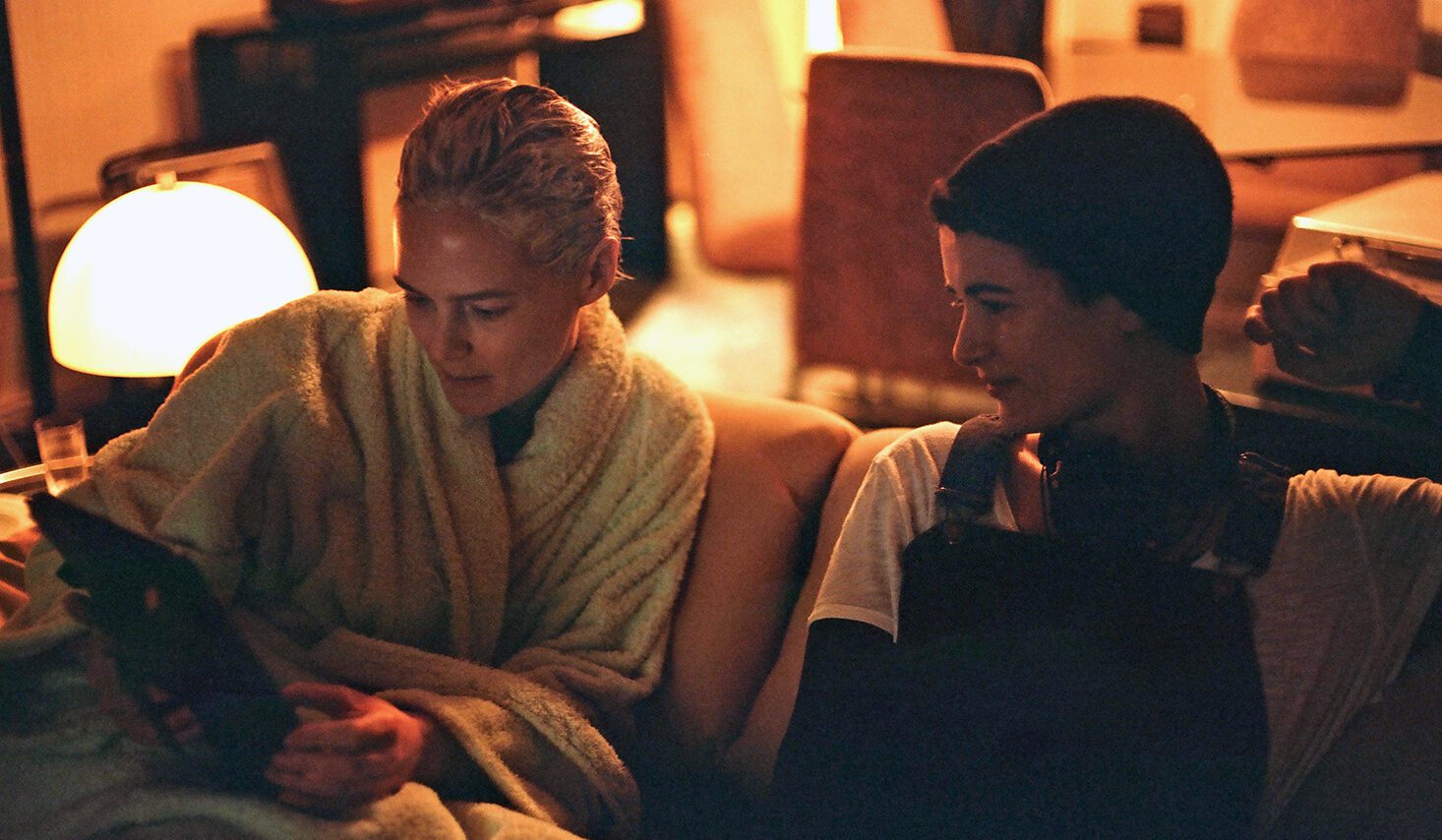
Your performance really shows that in Jean, and her ability to understand that self-acceptance is the key. Is there anything that you’ve learnt specifically from playing the role of Jean that you’ll take into your own life?
Rosy: The reason Jean is the way she is, is because she’s a product of the society she’s been born into, and that’s why it’s so heartbreaking. She’s shy, and when you see her with Viv, she feels more free and lighter. I imagine that she wants to feel like that all of the time, but she’s got these subliminal messages that she’s been getting from an early age that what she feels isn’t normal. So it’s pushed her into a corner.
Knowing that has made me more aware moving through the life that I’m in now of how we’re always told how to be, or to look a certain way or be a certain way. You have to either be really intelligent or really funny to fit into a room, and now knowing that you can actually just go ‘fuck you’ – you’re telling me that but that doesn’t feel right for me. So I think striving to be your most authentic self is probably something I’ll take away with me.
Georgia: I never normally go as far as [thinking about the] audience, but for me, the feeling of speaking to people who have been affected by the film or moved by the film … or the messages I’m receiving from people I’ve never met on Instagram, they’re so moving. I was thinking about what am I going to do next? When we finished BLUE JEAN, all I knew was that I had to find something that meant as much to me as this has, and that has allowed me to connect with the feeling of digging back through my own stuff and putting it out there. It’s incredibly rewarding to speak to anybody who’s responded to it in any way because it’s not something that I’d ever thought would happen.
BLUE JEAN is out in cinemas in the UK and Ireland from 10 February with Altitude Films
